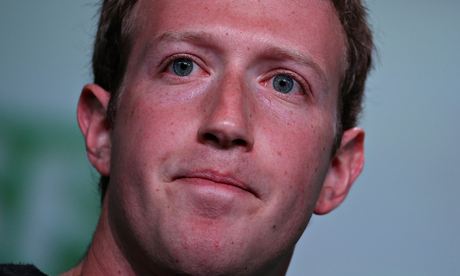
Facebook's Sheryl Sandberg has more than halved her stake in the social network since its initial public offering and has raised an estimated $113m (£68m) from share sales this year, according to offical company filings.
The chief operating officer has sold the most shares of anyone on Facebook's top team, making the most of the surge in the share price since last summer. Her stake has fallen from 41m shares at the time of the flotation in May 2012 to 17.7m today – still worth more than $1bn.
Sandberg cashed in the shares to help pay tax bills, although the disposals have reignited speculation that she is planning to run for public office – something she has denied. The 44-year-old was chief of staff to Lawrence Summers when he was treasury secretary under the Clinton administration and has made regular appearances at the global leadership gathering in Davos.
According to documents lodged with the US Securities and Exchange Commission this week, Facebook's executive directors earned less in 2013 than in the year of the flotation, with multi-billionaire Zuckerberg earning just $1 after waiving both his salary and cash bonus.
The 29-year-old entrepreneur is following in the footsteps of Apple's Steve Jobs, and Google's Larry Page and Sergey Brin, by claiming only a nominal salary.
However, Zuckerberg and his guests did run up a $650,000 bill using private jets for non-work trips, which the company pays for to ensure his personal security.
Sandberg's pay and shares package fell to $16m – down from $26m in 2012 when the company floated.
Her base salary rose from $340,000 to $395,000, and her bonus rocketed from $277,000 to $604,000, but at $15m her stock option grant was worth significantly less than last year.
Sandberg was granted more than 38m Facebook shares at the time of the initial public offering, bringing to 41m the number of shares she owned or was due to receive. Had she held on to all those shares, they would be worth $2.5bn – Facebook's stock was trading at just under $62 on Tuesday.
Reduced stock awards also meant a pay cut for the finance director, David Ebersman, whose compensation fell to $10m compared with nearly $18m the year before. His basic pay was identical to Sandberg's, while his bonus jumped from $187,000 to $604,000, while he received more than $9m in stock options.
While Zuckerberg's deputies received new shares last year, Facebook's compensation committee decided not to award more to the chief executive because "his existing equity ownership position sufficiently aligns his interests with those of our stockholders".
Although Zuckerberg's salary has dropped from $500,000 to $1, he is now twice as rich as last year after the value of Facebook's shares doubled. The founder controls nearly 62% of his company's voting power, down from 67% the year before, and his holding is worth $27bn.
Zuckerberg's main income in 2013 came from a secondary offering of Facebook shares in December. He sold 41m shares worth $2.2bn at the time – also to help settle a tax bill – and gave 18m shares to charity.
As well as paying for his personal air travel – about half the $1.2bn bill he ran up in the previous year – the company also funds Zuckerberg's "overall security program", stumping up for bodyguards and security equipment. From this year, Facebook said it was also contributing to Sandberg's security costs.
Each of Facebook's non-executive directors received shares worth $300,000, in what will be an annual grant. The money is in addition to their basic $50,000 fee for steering the board.
The directors have also agreed changes to the list of companies Facebook compares its performance to when deciding executive rewards. Oracle, the business software company, and games developer Zynga have been dropped from the mix, while German software group SAP has become the first non-American company to feature.
The peer group has been expanded from 13 to 16 companies, with Adobe, EMC, Qualcomm, SAP and the Walt Disney Company added to a line up that includes all the major names in tech, from Apple to Cisco, Google and Microsoft.

